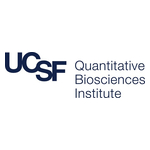Novel convergent biological systems approach illuminates comprehensive protein-protein interaction network involving 100 autism spectrum disorder risk genes, serving as an unprecedented new platform for therapeutics development
Findings represent first comprehensive protein-protein interaction map of any neuropsychiatric disorder
Approach can be applied to other neuropsychiatric disorders as well as a wide range of genetically defined conditions
SAN FRANCISCO–(BUSINESS WIRE)–The Quantitative Biosciences Institute (QBI), in collaboration with the Department of Psychiatry and Behavioral Sciences, at the University of California, San Francisco (UCSF), today reported new breakthrough research findings in the understanding of autism spectrum disorder (ASD). The study, entitled “A Foundational Atlas of Autism Protein Interactions Reveals Molecular Convergence”, posted on bioRxiv, was led by co-senior authors Nevan Krogan, Ph.D., Director of QBI at the School of Pharmacy at UCSF and Senior Investigator at Gladstone Institutes and Jeremy Willsey, Ph.D., Associate Professor in the Department of Psychiatry and Behavioral Sciences and the Weill Institute for Neurosciences, along with Matthew W. State, M.D., Ph.D., Chair of the Department of Psychiatry and Behavioral Sciences and Tomasz Nowakowski in the Departments of Neurosurgery, Anatomy and the Weill Institute for Neurosciences. Belinda Wang, MD, Ph.D., Rasika Vartak, Ph.D., Fima Zaltsman, Ph.D., and Zun Zar Chi Naing, Ph.D. are co-first authors of the manuscript. Their findings provide unprecedented insights into the molecular mechanisms of a subset of individuals with ASD who carry specific genetic mutations, serving as a new platform for desperately needed therapeutics development.
“For the first time, we have mapped a foundational protein-protein interaction network involving 100 ASD risk genes revealing hundreds of novel unique interactors that are expressed in the human brain and enriched for ASD genetic risk,” said Dr. Krogan. “This work underscores the power of our novel convergent biological systems approach developed at QBI, which heavily leverages AI along with other cutting-edge approaches including mass spectrometry, CRISPR-based genetics, and brain organoids or “mini-brains” to reveal unprecedented insights across some of most challenging areas of science and human health.”
“This groundbreaking study represents the first detailed, global picture of how the proteins encoded by autism risk genes interact with each other, form functional complexes and, importantly, how mutations in these genes disrupt these interactions. The insights gained from this study move us closer to a mechanistic understanding of autism biology and provide a framework for therapeutics development in autism and other neuropsychiatric disorders, where almost all of the currently available medications have been discovered by serendipity and are limited in efficacy,” said Dr. Willsey.
Dr. State added, “My lab was one of a handful that had the first glimpses of what has become a long list of bona fide, large-effect ASD risk genes. It was breathtaking then, but this current work feels at least as important. This unprecedented level of molecular resolution promises to usher in a new era of opportunity for rational therapeutic design for a subset of people with ASD, after a decade of halting progress.”
Specifically, the protein-protein interaction network outlined in this study showed coalescence on specific protein complexes, enrichment in human neural progenitor cells and excitatory neurons, and further implicates neurogenesis as a key nexus of ASD. This study, which was submitted to a peer-reviewed journal, points to not only novel therapeutic targets for a subset of autism, but importantly provides insight on how to target them.
QBI’s convergent biological systems approach that formed the basis of this study can be applied to virtually any disease area. Earlier this year, QBI founded Rezo Therapeutics, which spearheaded the AI-related analysis of this work, to advance its Sequence to Systems to Drugs (SSD) platform technology, which integrates cutting-edge approaches in proteomics, genetics, structural biology, chemistry and AI/machine learning, with an initial focus in oncology.
About Autism Spectrum Disorder (ASD): ASD is a developmental syndrome defined by fundamental impairments in social communication and highly restricted interests or repetitive behaviors. The autism spectrum encompasses a wide range of individuals, from those who do not experience their symptoms as a disability to those who are severely affected and require full-time, lifelong care. Autism is one of the most heritable neuropsychiatric disorders and a large number of risk genes carrying high effect sizes have been identified.
About QBI: The Quantitative Biosciences Institute (QBI) is a University of California organized research unit reporting through the UCSF School of Pharmacy. QBI fosters collaborations across the biomedical and the physical sciences, seeking quantitative methods to address pressing problems in biology and biomedicine. Motivated by problems of human disease, QBI is committed to investigating fundamental biological mechanisms, because ultimately solutions to many diseases have been revealed by unexpected discoveries in the basic sciences. Learn more at qbi.ucsf.edu.
About the Department of Psychiatry and Behavioral Sciences: The Department of Psychiatry and Behavioral Sciences is a national leader in the fields of child, adolescent, adult, and geriatric mental health. It is one of the largest departments in the UCSF School of Medicine and the UCSF Weill Institute for Neurosciences, with a mission to advance research teaching, patient care, and public service through broad cross-disciplinary collaboration. Learn more at https://psychiatry.ucsf.edu/
About UCSF: The University of California, San Francisco (UCSF) is exclusively focused on the health sciences and is dedicated to promoting health worldwide through advanced biomedical research, graduate-level education in the life sciences and health professions, and excellence in patient care. UCSF Health, which serves as UCSF’s primary academic medical center, includes top-ranked specialty hospitals and other clinical programs, and has affiliations throughout the Bay Area. Learn more at ucsf.edu or see our Fact Sheet.
Contacts
UCSF QBI
1AB
Katie Engleman
katie@1abmedia.com
UCSF
Robin Marks
Robin.Marks@ucsf.edu




















